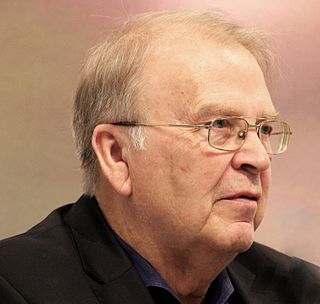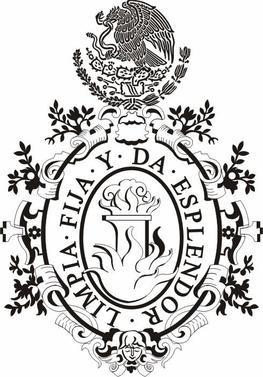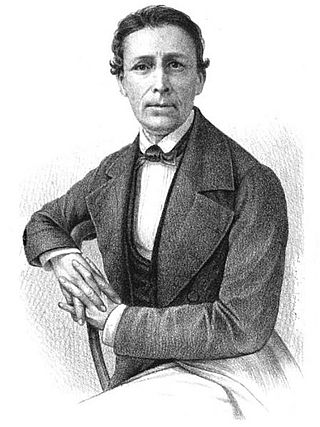American college literary societies
There was a specialized form of the literary society which existed at American colleges and universities in the 19th century. The college literary societies were a part of virtually all academic institutions. Usually they existed in pairs at a particular campus, and would compete for members and prestige, and supplemented the classical studies of the curriculum with modern literature and current events. Many also maintained significant libraries, which often rivaled or surpassed the college library. When they disbanded, the libraries were typically given to the college. Even today, the oldest books in the early American colleges often bear the bookplate of a literary society.
These are Latin-named and -themed organizations whose purposes vary from society to society. Activities include but are not limited to: The weekly presentation of papers written by society members, and a debate on its merits; Readings of members work and others', followed by discussion; literary Productions, which are practices in oratory skill; intramural sports teams; service events; and social gatherings. Meetings were often ended with snacks, such as peanuts or sardines. Singing and music also played a role in society life as musical instruments became more available. There are seven active literary societies at Illinois College. It is from the collegiate literary societies with Latin names that the earliest Greek organizations sprung. As an example, Beta Theta Pi fraternity was started by 8 students of the Union Literary Society at Miami University in 1839. Many early Greek chapters were started as a result of schism in the Latin societies. The Greek chapters were smaller, numbering from 8 to 15 at any given time. These were more intimate groups as compared to the societies. Confidences could be shared, promoting a certain amount of secrecy, which became an early hallmark of a Greek chapter. And as the Greek organizations grew, the literary societies declined. Some vestiges remain, but for the most part society life ended in the early twentieth century.
German studies is the field of humanities that researches, documents and disseminates German language and literature in both its historic and present forms. Academic departments of German studies often include classes on German culture, German history, and German politics in addition to the language and literature component. Common German names for the field are Germanistik, Deutsche Philologie, and Deutsche Sprachwissenschaft und Literaturwissenschaft. In English, the terms Germanistics or Germanics are sometimes used, but the subject is more often referred to as German studies, German language and literature, or German philology.

Wilhelm Genazino was a German journalist and author. He worked first as a journalist for the satirical magazine pardon and for Lesezeichen. From the early 1970s, he was a freelance writer who became known by a trilogy of novels, Abschaffel-Trilogie, completed in 1979. It was followed by more novels and two plays. Among his many awards is the prestigious Georg Büchner Prize.
Antonio Alatorre Vergara was a Mexican writer, philologist and translator, famous due to his influential academic essays about Spanish literature, and because of his book Los 1001 años de la lengua española.

Guillermo Prieto Pradillo was a Mexican novelist, short-story writer, poet, chronicler, journalist, essayist, patriot and Liberal politician. According to Eladio Cortés, during his lifetime he was considered Mexico's national poet, and his political allegiance to the Mexican liberals allowed him to serve as Minister of Finance and Foreign Affairs under different administrations.

The Academia Mexicana de la Lengua is the correspondent academy in Mexico of the Royal Spanish Academy. It was founded in Mexico City on 11 September 1875 and, like the other academies, has the principal function of working to ensure the purity of the Spanish language. Academy members have included many of the leading figures in Mexican letters, including philologists, grammarians, philosophers, novelists, poets, historians and humanists.
Miguel Méndez was the pen name for Miguel Méndez Morales, a Mexican American author best known for his novel Peregrinos de Aztlán. He was a leading figure in the field of Chicano literature.

The Academia Mexicana de Genealogía y Heráldica is a cultural institution based in Mexico City, Mexico.

Barbara Aland, née Ehlers is a German theologian and was a professor of New Testament Research and Church History at Westphalian Wilhelms-University of Münster until 2002.
Rudolf Doehn was a German writer and journalist. He belonged to the Forty-Eighters who participated in the American Civil War as volunteers in the Union Army. Here, he became also known as Randolph Doehn.

Angelina Muñiz-Huberman is a Mexican writer, academic, poet and professor. She is known for her work and research on Ladino, crypto-Judaism, Jewish mysticism and Sephardic Jews. Muñiz-Huberman is a recipient of the Xavier Villaurrutia Award and the Sor Juana Inés de la Cruz Prize. In 2022, she received an honorary doctorate from the National Autonomous University of Mexico (UNAM) for a lifetime's work, an honor she shares with such figures as John Dewey, Octavio Paz and Juan Rulfo.

Gert Ledig, full name Robert Gerhard Ledig, was a German writer.
José Luis Martínez Rodríguez was a Mexican academic, diplomat, essayist, historian, bibliographer and editor. He was the director of the Fondo de Cultura Económica from 1977 to 1982 and professor of literature with the Faculty of Philosophy and Letters at the National Autonomous University of Mexico.
Maria Blanca de Lizaur Guerra, commonly known as Blanca de Lizaur, is a writer and researcher specialized in cultural studies, communications and literature. She was born in Mexico City, Mexico, to Spanish parents.

Pol Popovic Karic is a professor and research in Spanish, English and French literature at the Tec de Monterrey, Campus Monterrey. He has published and edited a number of books as well as articles for Mexican and international journals. His research work has been recognized with Level II membership in the Sistema Nacional de Investigadores and the Academia Mexicana de Ciencias.

Laureana Wright de Kleinhans, or simply known as Laurena was a Mexican writer and feminist pioneer. Her writings on the role of women, were revolutionary for her time. Her magazine, Violets of Anahuac in 1887, changed the paradigm by promoting as the core ideology of the magazine, the feminine ideal of a cultured, educated wife and mother. The publication promoted female education and insisted that the intellectual equality between men and women was the means of emancipation. She was one of the first feminist theorists in Mexico, asking women to question their role in society and the conditions in which they lived. She covered topics such as education, women's suffrage and legal equality between men and women. She wrote patriotic poetry and served as the vice president of the Spiritualist Society of Mexico, which she joined because one of its principles held that men and women were of equal intelligence.
The Literary Society of 1842 was a group of prominent Chileans from the social, political, and literary fields. Its goals were promoting originality among the nation's writers, strengthening the social quality of literature, and rejecting foreign literary models. The group held 86 meetings from 5 March 1842 to 1 August 1843.

José Joaquín Pesado Pérez was a Mexican writer, journalist, poet and politician. He was born in San Agustín del Palmar, Puebla, in 1801 and died in Mexico City in 1861. In 1822, he married María de la Luz de la Llave y Segura, and Juana Segura Argüelles twenty years later.

Briceida Cuevas, also known as Briceida Cuevas Cob is a Mayan poet. She writes poems about everyday life in Yucatec Maya, many of which have been translated into Spanish, French and English. She is a member of Escritores en Lenguas Indigenas A.C., and a corresponding member of the Academia Mexicana de la Lengua.

Hartwig Karl Friedrich Eggers was a German art historian. He was a member of the literary groups Tunnel über der Spree and Rütli.
Nicolai Riedel is a German philologist, author and an editor. Riedel worked for a long time as a research fellow in the library of the German Literature Archive in Marbach am Neckar. In addition, he is the author and editor of numerous bibliographical publications. These include works on Uwe Johnson, Ernst Jünger and Günter Kunert.











